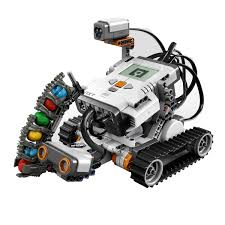With everything in our daily lives becoming more technical how important is knowing how to code? Grandma can FaceTime, my washing machine can send me text messages and Xbox only needs my voice for control. Should I take the time to understand what coding’s got to do with it?
Why not?!
If you’re the parent of a young kid, now is the perfect time to introduce programming and computational thinking. If you are able to help out and follow along, you may learn something too. If you’re looking to become more technical in your career, then there is no excuse to not learn coding as long as you have access to a computer.
I am asked quite often about how someone could become more technical, from people including family members, mothers and fathers, and from those just curious about learning the ins and outs of programming. Since I’m blogging, I figured I would write a post that I could refer to instead of having the same conversations over and over again.
For kids under the age of 15 there are some neat resources available online:
- Code.org – Materials are available for students and educators. For students, there is a Code Studio, local classes and other online courses.
- Crunchzilla.com
– Has some interactive tutorials where kids and adults can play with code, experiment, build and learn. - Tynker.com – Tynker.com has a lot of guided, self-paced assignments that allow kids to build games and projects.
For those interested in technical careers or new challenges:
I have met quite a few people looking to make a career change— sometimes even because they needed a new challenge in life. The transition from a non-technical role/career to one that is very technical can seem like a daunting task for some people. However, even though it’s not easy, it can be done. There are a ton of success/failure stories online to learn from. Entire companies specialize in this type of transition. For the cavalier amongst us, there are free online resources that can be used to build your skills up.
The first step is to spend some time figuring out which technology you want to learn. My default suggestion usually is HTML/Web. There are a ton of examples and tutorials online. HTML runs on desktops, mobile devices and locally on computers. It is a very lower barrier to entry and something that does not require a huge investment (e.g. You can only program for iOS on an Apple Mac computer, which will set you back at least $1,000).
Some available options for those looking to learn how to code or for a career change.
The options listed here are really just the tip of the iceberg. There is currently an overwhelming array of choices (each with their own pros and cons) available for the interested learner. My advice would be to try a few and stick with what resonates with you.
The great thing about technology is that it is a great equalizer. You do not need a PhD or Master’s in Computation to have a rewarding career. The technology community is very helpful and filled with people that do not mind lending a helping hand. You just have to want it.
